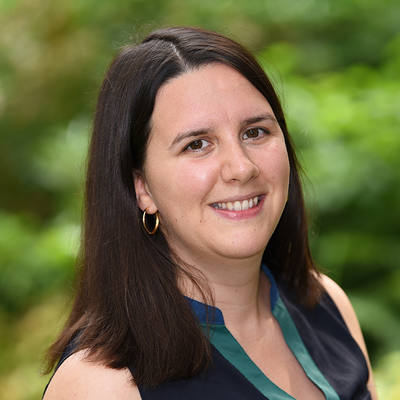
About me
On the Sanger Institute Blog:
Breath of fresh air - interview with Josie Bryant
Genomics has become a powerful tool for understanding how microbes respond and adapt over time and in different environments. My research focuses on developing genomic tools to explore how the microbiome evolves over time in people’s lungs, and using this information to help clinicians provide more effective and timely care for patients with chronic lung conditions.
The lungs of individuals with conditions such as cystic fibrosis or chronic obstructive pulmonary disease can experience sustained infection by bacterial, viral and fungal pathogens that can have a serious impact on disease progression. Infection over the course of decades provides opportunities for microbes to evolve and adapt to the diseased lung environment and to develop resistance to antimicrobials.
I am passionate about using genomics to explore real-world microbial evolution in the lungs and working in partnership with clinicians to deliver better outcomes for patients with chronic conditions. Studying the microbial populations within a person’s lung is challenging, but the rewards are well worth the effort. My work exploring the evolution of Mycobacterium abscessus and Pseudomonas aeruginosa in the lungs of individuals with cystic fibrosis (CF) required creativity and persistence to develop the necessary bioinformatic techniques. However, being able to compare a person’s medical history with a genomic view of the disease-causing bacteria in their lungs means that we can now pinpoint how specific changes the bacteria’s genomes can explain why a patients symptoms have worsened and why antibiotic therapy isn’t working. Being able to look at the genome data and advise a change in therapy that lessens an individual’s suffering is hugely rewarding.
Yet the relevance of the wider microbial community in people’s lungs is still very much unknown. Until now it has only been possible to focus on a handful of bacterial species, but there is much more to discover that could positively impact patient care. By bringing together the expertise of the Sanger Institute in genomic sequencing, metagenomics and analysis at scale, with clinical networks of samples and patient data, my team will develop a foundational baseline view of the respiratory microbiome in health and disease.
Another area of understanding I am interested in is how the lung microbiome varies not only over time, but also across the range of different micro-environments found throughout respiratory system. By applying metagenomics to patient samples derived from different sites within the lungs, we aim to uncover new biological insights into the ecological and evolutionary factors that shape the lung microbiome and develop hypotheses that we can then test in the laboratory.
Adopting a collaborative approach is a key feature of my work. I firmly believe that bringing together clinical partners with laboratory scientists, bioinformaticians and theorists enables us not only to do great science, but also to provide actionable benefits for patients.
I love a challenge and using creativity to break new ground. I encourage my team members to be bold, to take on the hard challenges, and to collaborate to build and innovate new solutions. I think we all benefit when each member of the team is learning and growing, so I am dedicated to creating a working environment that is supportive and inclusive.
I’m always on the lookout for new collaborations, so if you’re interested, please send me an email.
Selected Publications
Bryant JM, Brown KP, et al. Stepwise pathogenic evolution of Mycobacterium abscessus. Science 2021; 372: eabb8699f. DOI: 10.1126/science.abb8699
Bryant JM, Grogono DM, et al. Emergence and spread of a human-transmissible multidrug-resistant nontuberculous mycobacterium. Science 2016; 354: 751-757. DOI: 10.1126/science.aaf8156
Bryant JM, Harris SR, Parkhill J, et al. Whole genome sequencing to establish relapse or re-infection with Mycobacterium tuberculosis: a retrospective observational study. Lancet Respiratory Medicine 2013; 10: 786-92. DOI: /10.1016/S2213-2600(13)70231-5
Bryant JM, Grogono DM, Greaves D, et al. Whole-genome sequencing to identify transmission of Mycobacterium abscessus between patients with cystic fibrosis: a retrospective cohort study. Lancet 2013; 381: 1551-60. DOI: 10.1016/S0140-6736(13)60632-7
My timeline
Group Leader in the Parasites and Microbes programme - Wellcome Sanger Institute
Henry Wellcome Research Fellow investigating Within-host diversity of cystic fibrosis pathogens with Professor Andres Floto - University of Cambridge
Became a Research Associate on the EU funded PATHSEEK Project with Professor Judith Breuer - University College London (UCL)
Completed PhD Molecular Biology at the Wellcome Sanger Institute - Using whole genome sequencing to investigate evolution in pathogenic Mycobacteria, with Professor Julian Parkhill
Graduated with First Class Honours B.Sc. Biology with a year in industry - University of Bath
Final Year Dissertation - Evolutionary basis for AT skew in Staphylococcus aureus, with Professor Edward Feil
One-year professional placement – GlaxoSmithKline, Harlow Completed with distinction